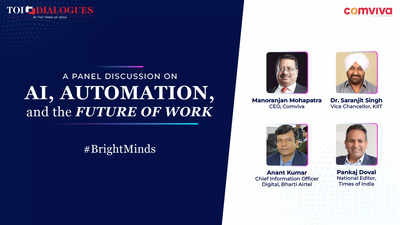
AI's impact is particularly noticeable in sectors like finance, healthcare, and manufacturing. Financial institutions are increasingly adopting AI to enhance data analysis and risk management, reducing the need for traditional clerical roles while boosting demand for data scientists and AI specialists. In healthcare, AI is revolutionizing diagnostics and personalized medicine, leading to a surge in jobs related to medical data management and AI-driven patient care solutions. Meanwhile, manufacturing is witnessing automation's influence, which is improving production efficiency but also necessitating a workforce skilled in managing and maintaining advanced robotic systems.
A notable trend is the growing importance of tech-related skills across all sectors. Employers are prioritizing candidates who can navigate AI tools and integrate them into their workflows. This shift is prompting educational institutions and training programs to adapt their curricula, emphasizing digital literacy and AI proficiency. Career transitions are becoming more common as workers seek to align their skills with the evolving job market demands.
Despite these advancements, the rise of AI also raises concerns about job displacement. Workers in roles susceptible to automation, such as routine administrative tasks and certain manual labor positions, face increased uncertainty. This situation underscores the need for robust reskilling and upskilling initiatives to help affected individuals transition to new roles and industries.
The federal government and private sector are responding with various strategies to mitigate the negative impacts of automation. Initiatives aimed at providing retraining opportunities, such as funding for vocational programs and partnerships between tech companies and educational institutions, are being implemented to support workforce adaptation. Additionally, there is a push for policies that promote responsible AI deployment and address the broader economic implications of technological advancements.
Key players in this transformation include major tech firms like Google, Microsoft, and IBM, which are at the forefront of developing AI technologies and shaping industry standards. These companies are not only driving innovation but also influencing the broader discourse on AI ethics and workforce implications. Their role in defining how AI is integrated into the workforce and its potential impacts on employment cannot be overstated.
As AI continues to evolve, its influence on the job market is likely to expand, prompting further changes in employment trends and industry requirements. The ongoing dialogue among policymakers, businesses, and educational institutions will be crucial in navigating these shifts and ensuring that the benefits of AI advancements are widely distributed while addressing the challenges they present.
Topics
World
